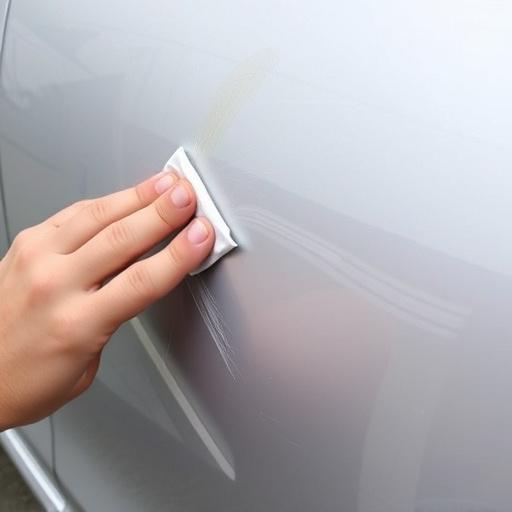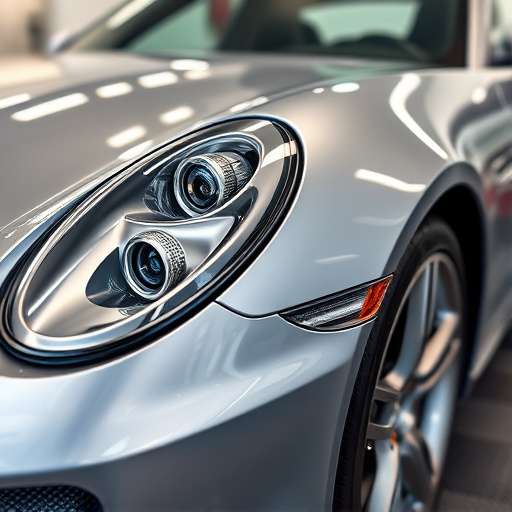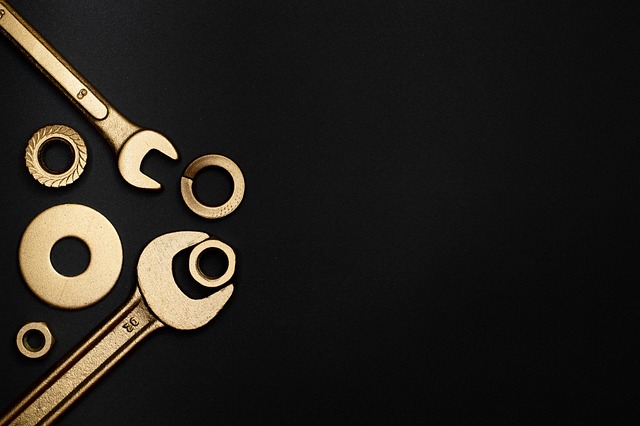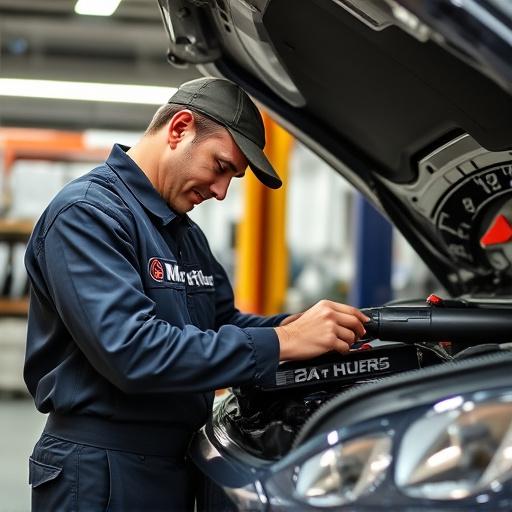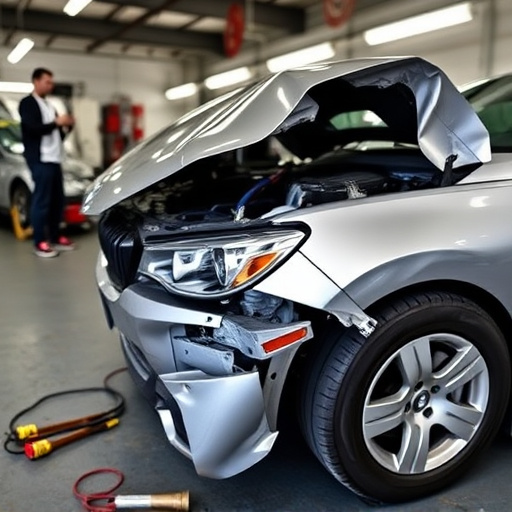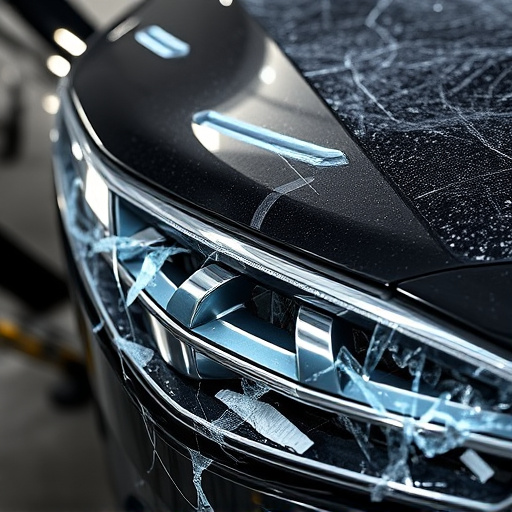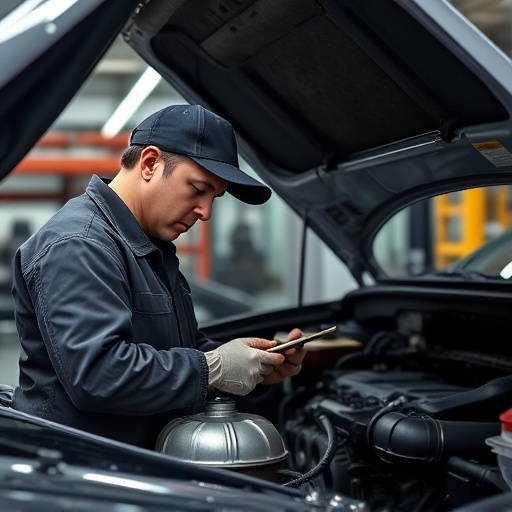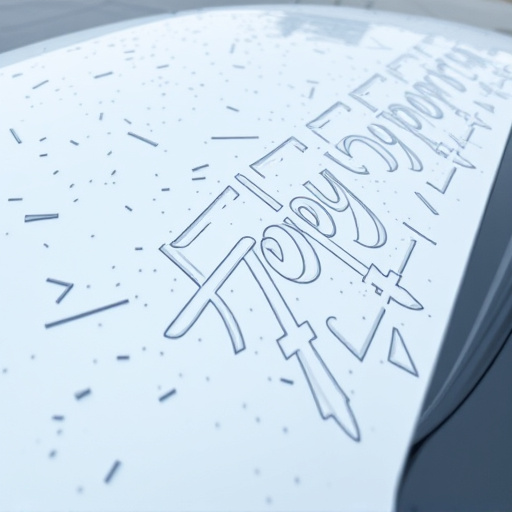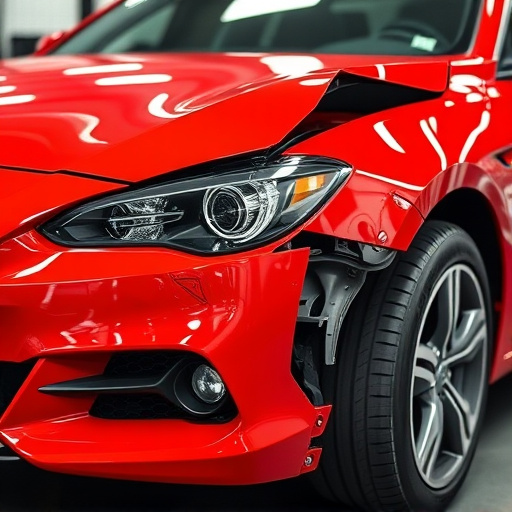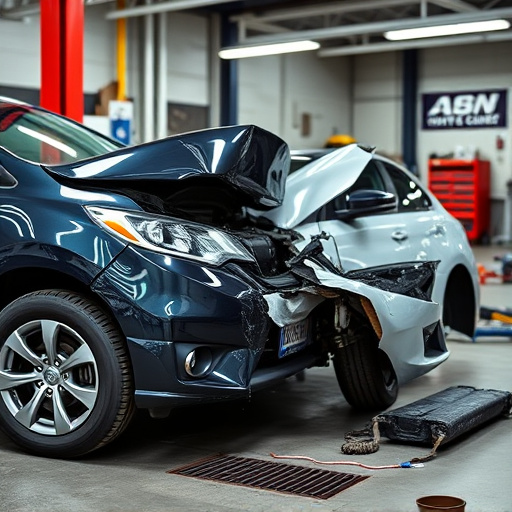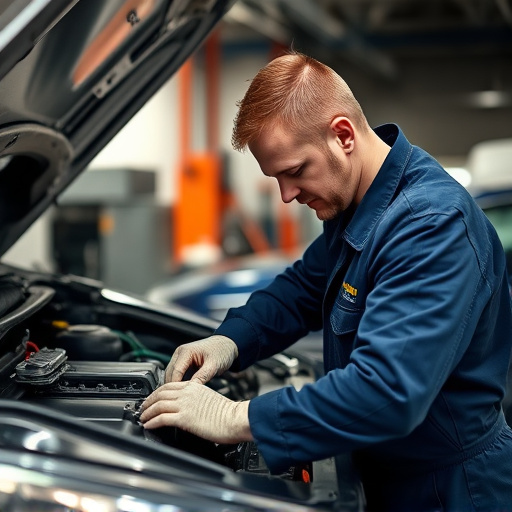Aluminum's lightweight and high-strength properties make it a leading choice in automotive design, enhancing vehicle value through improved fuel efficiency and reduced emissions. While carbon fiber components offer superior aesthetics and durability, aluminum's natural corrosion resistance and cost-effectiveness make it ideal for diverse climates, preserving both structural integrity and resale value.
Aluminum body components play a pivotal role in maintaining and enhancing vehicle value over time. In today’s market, where lightweight materials are in high demand, aluminum stands out as a key player. This metal offers not just reduced weight but also superior durability and corrosion resistance, contributing to better resale value. Additionally, the integration of carbon fiber components further boosts aesthetics and performance, making vehicles more desirable to potential buyers. Understanding these factors is essential for both car manufacturers aiming to stay competitive and consumers seeking long-term investment in their vehicles.
- Lightweight Materials: Aluminum's Role in Vehicle Value Retention
- Durability and Corrosion Resistance: Key Advantages of Aluminum Body Components
- Aesthetic Appeal & Resale Value: The Impact of Carbon Fiber Integrations
Lightweight Materials: Aluminum's Role in Vehicle Value Retention

Aluminum has emerged as a key player in the automotive industry for its exceptional lightweight properties, which significantly contribute to vehicle value retention. Unlike heavier metals like steel, aluminum offers excellent strength-to-weight ratio, making it an ideal choice for modern car manufacturers. By incorporating aluminum body components, automakers can reduce overall vehicle weight, leading to improved fuel efficiency and lower emission levels. This not only benefits the environment but also appeals to consumers who are increasingly conscious of these factors.
In the realm of classic car restoration and automotive repair, the use of aluminum is particularly noteworthy. It allows for precise fabrication and seamless integration into existing car bodywork services, ensuring that restored vehicles maintain their original aesthetics while enjoying enhanced structural integrity. This precision craftsmanship is also valuable in custom car builds, where the versatility of aluminum enables creative designs that stand the test of time, much like carbon fiber components renowned for their strength and lightweight nature.
Durability and Corrosion Resistance: Key Advantages of Aluminum Body Components
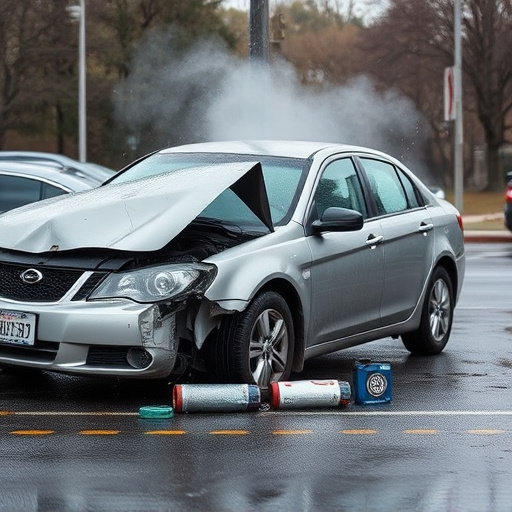
Aluminum body components offer significant advantages when it comes to durability and corrosion resistance, making them a top choice in modern automotive design. This lightweight metal is renowned for its exceptional strength-to-weight ratio, ensuring vehicle bodywork remains robust and resilient even under extreme conditions. Unlike traditional materials like steel, aluminum effectively resists rust and corrosion, which is a common issue with car bodywork over time. This durability translates to longer-lasting vehicles and reduced costs for car scratch repair or other cosmetic damages.
In comparison to carbon fiber components, aluminum provides a cost-effective alternative without compromising structural integrity. While carbon fiber excels in specific applications due to its extraordinary strength and stiffness, aluminum offers a more versatile solution for maintaining vehicle value. Its natural corrosion resistance makes it particularly advantageous for regions with harsh weather conditions, ensuring the car bodywork retains its aesthetic appeal and structural soundness for years to come.
Aesthetic Appeal & Resale Value: The Impact of Carbon Fiber Integrations

The integration of carbon fiber components within automotive manufacturing has revolutionized both the aesthetic appeal and resale value of vehicles. Carbon fiber, known for its exceptional strength-to-weight ratio and sleek, modern look, enhances the overall visual allure of a car. Its smooth, seamless surface and distinctive pattern contribute to a high-end, sophisticated appearance that is particularly appealing to discerning buyers.
Moreover, cars featuring carbon fiber components often command higher resale values due to their advanced materials and construction techniques. Unlike traditional metal body panels, which can show signs of wear and damage over time, carbon fiber is highly resistant to denting and scratching. This means that even after years of use or minor incidents like car dent removal or collision damage repair, vehicles with carbon fiber integrations retain their initial aesthetic integrity, ensuring better resale value for owners.
Aluminum body components play a significant role in maintaining and enhancing vehicle value. Their lightweight nature, coupled with exceptional durability and corrosion resistance, ensures cars retain their aesthetic appeal over time. While carbon fiber components further elevate the resale value through their strength-to-weight ratio and sleek designs, aluminum’s versatility remains indispensable in the automotive industry. By adopting these materials, manufacturers not only create efficient vehicles but also contribute to a sustainable future.

